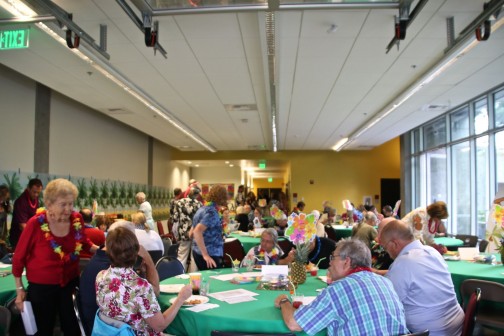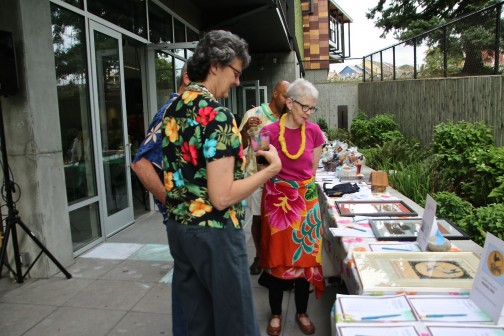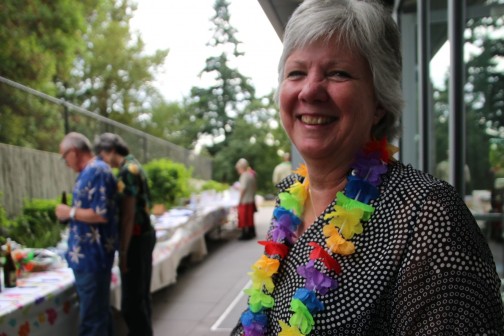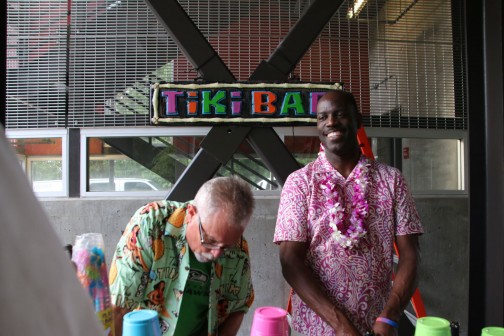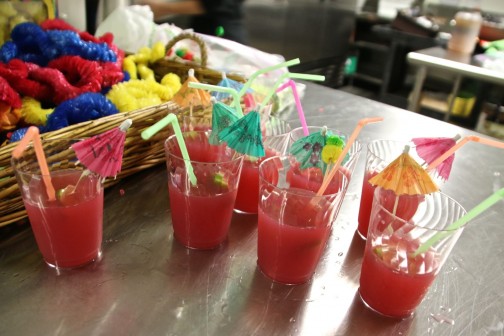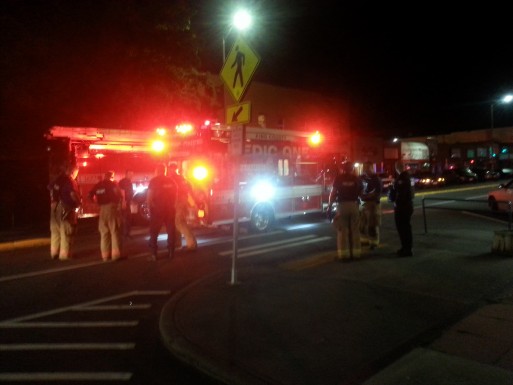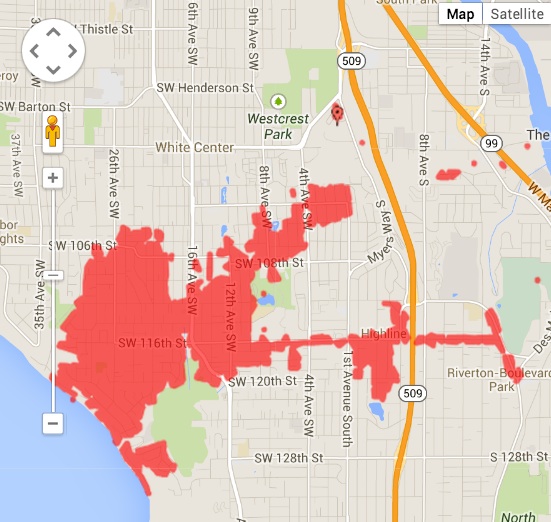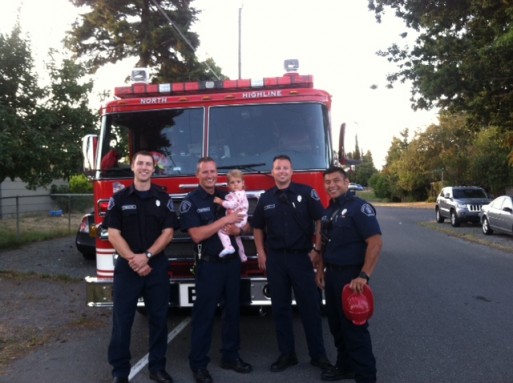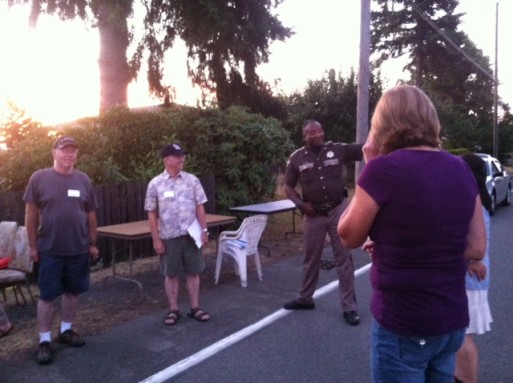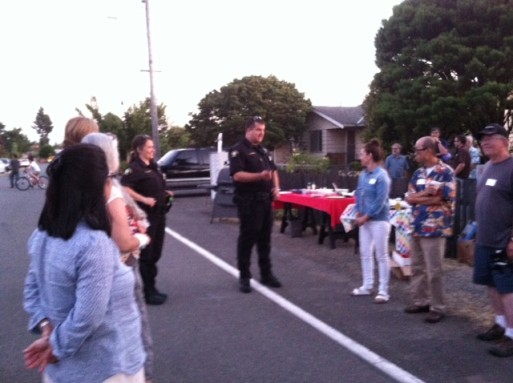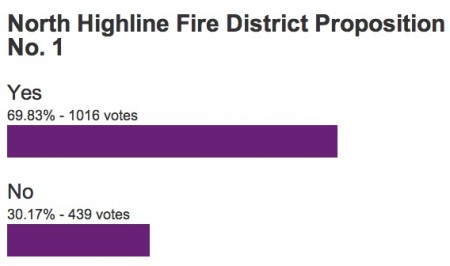By Tracy Record
White Center Now editor
It’s been five months since County Councilmember Joe McDermott‘s newsletter touted a county grant for “bike corral” parking in downtown White Center – but the corral’s not in place yet. One more community conversation is planned for next week.
The corral would triple bicycle parking in downtown White Center, which has an increasing population to serve, especially with more development on the drawing boards right across the city/county line in the South Delridge area. Immediately north of the business area, the city of Seattle is working on a project that is expected to make the busy Roxbury arterial friendlier and safer for bicycle riders and pedestrians.
The corral is proposed for 16th SW in front of Proletariat Pizza and Caffé Delia, both of which are excited about it. The space is currently used for two diagonal motorized-vehicle spaces. If converted to bike-corral space, it would park up to 20 bikes.
Proletariat’s proprietors are hoping to clear up misconceptions and concerns they say are being voiced by nearby businesses who don’t like the idea. They contacted WCN to let us know about the meeting next week. It’s being hosted by the White Center Community Development Association, which was involved in seeking the grant to fund the bike corral, at 6:30 pm Tuesday (August 26th) in the King County Sheriff’s Office storefront space in downtown White Center.
The $3,000 grant is to come from the Community Service Areas‘ grant funds, set up when King County changed its relationship with unincorporated areas a few years ago. The rationale voiced in the grant document:
The White Center Community Development Association (WCCDA) along with local White Center residents are requesting funding for the “Bike, Shop, Eat White Center” project; the primary goal of this project is to grow bicycling in White Center as an alternative method of transportation for local families and residents. Funding to purchase the bicycle corrals will increase bicycle parking in the White Center business district, which will encourage residents to ride their bikes to local shopping and dining destinations. Part of our project proposal includes a bike ride led by experienced volunteer bicyclists; open to all in the White Center community to learn about safe riding techniques as well as bike and route safety. The ride would include stops at Greenbridge Library, the new bike corrals, and other neighborhood stops.
There are several benefits for the proposed project; increased physical activity for local residents, greater knowledge of bicycle and route safety, building community, and boosting the local economy.
As part of the grant application, proposers had to explain how certain goals would be met – here’s how they replied:
Promote the engagement of local residents in community or civic activities: by promoting bicycling as a healthy, local activity in White Center, we are helping to build community around alternative methods of transportation. Some local residents have expressed interest in hosting safety rides to teach others on riding safely and selecting safe routes; as White Center continues to grow into a family friendly neighborhood this is a way to engage with multiple generations while encouraging healthier habits.
Educate local residents about issues impacting them: One of the assets we have in White Center is its small-town feel; with shopping and dining destinations just a few blocks from home, many people still drive the few minutes rather than use it as an opportunity to walk or bike. The White Center/Boulevard Park neighborhoods have some of the starkest health statistics compared to the rest of King County. Data from Seattle King County Public Health indicates that access to exercise and obesity is a challenge for residents of the White Center/Boulevard Park areas for residents of all ages. Our project would be one of the ways to address this issue in White Center.
Implement a community enhancement project: A majority of the funding request for this project would be to purchase bike corrals for the neighborhood’s business district to more than TRIPLE existing bicycle parking. With the addition of bike corrals to the downtown core along with resident-led bike rides around White Center to educate those new to bicycling, we hope that this will begin a positive cultural shift that will support the local businesses and promote healthier habits.
North of White Center, West Seattle’s first official bike corral was installed in The Junction just last month. Seattle now has 26 bike corrals, according to the city website. Portland has four times that, according to its website.
Looking back at downtown White Center’s history, the angled parking dates to 1992. Branching out into a multimodal transportation system was foreseen in the 2007 “We Create White Center” report, which includes the goal (on page 15) “Create a community that supports and encourages bicycling as a mode of transportation,” and recommends “increased bicycle racks” (on page 95). That was years before County Executive Dow Constantine made “confronting climate change” one of his signature goals.
The storefront, site of next Tuesday’s 6:30 pm meeting, is at 9609 16th SW.




